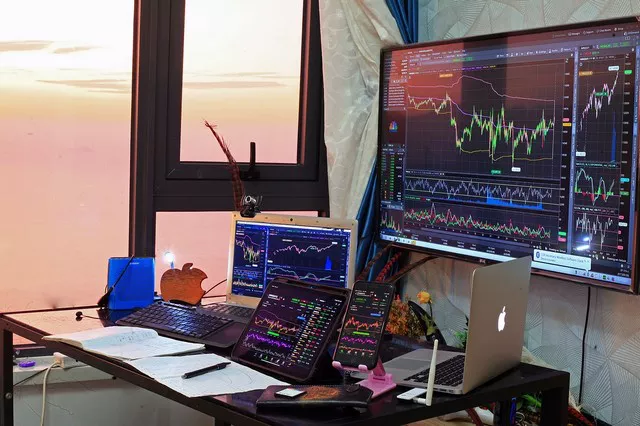Futures trading, a dynamic and potentially lucrative arena, offers investors the opportunity to speculate on the future price movements of various assets, from commodities to financial instruments. However, like any financial endeavor, futures trading comes with its set of disadvantages and challenges. In this exploration, we delve into the complexities of futures trading, dissecting the disadvantages that traders may encounter as they navigate this intricate and volatile landscape.
Leverage and Magnified Risk: A Double-Edged Sword
One of the prominent disadvantages of futures trading is the inherent use of leverage. While leverage allows traders to control a larger position size with a smaller amount of capital, it also magnifies the risks associated with trading. The use of leverage can result in substantial losses, especially in highly volatile markets. Traders must tread carefully, as the same leverage that amplifies potential profits can equally enhance the impact of adverse price movements, leading to significant financial setbacks.
Market Volatility: Riding the Roller Coaster
Futures markets are known for their inherent volatility, presenting both opportunities and challenges for traders. While volatility can create favorable conditions for profit, it also introduces an element of unpredictability. Sudden and drastic price movements can catch traders off guard, leading to unexpected losses. Navigating the roller coaster of market volatility requires a robust risk management strategy and the ability to adapt swiftly to changing market conditions.
Limited Time Horizon: Contract Expirations and Rollover Costs
Futures contracts have predefined expiration dates, adding a layer of complexity for traders. Holding a position until expiration may result in physical delivery of the underlying asset, which may not be practical or desirable for all traders. As a result, traders often engage in the process of rolling over contracts by closing out current positions and opening new ones with extended expiration dates. However, this process comes with costs, including transaction fees and potential slippage, adding to the overall expenses of futures trading.
See Also: What ETF tracks wheat futures?
Costs and Fees: An Ongoing Consideration
Futures trading is not without its associated costs and fees. Traders should be mindful of transaction costs, which include commissions and fees charged by brokerage firms for executing trades. Additionally, there may be costs associated with maintaining margin requirements, overnight financing, and rollover fees for extended positions. These costs can accumulate over time, impacting the overall profitability of futures trading and necessitating a thorough assessment of the fee structure when choosing a brokerage.
Complexity and Learning Curve: Steep Hills to Climb
The complexity of futures markets and the financial instruments involved can present a steep learning curve for aspiring traders. Understanding the intricacies of futures contracts, margin requirements, and the impact of economic factors on price movements requires a comprehensive education. Novice traders may find it challenging to navigate the complexities of futures trading without investing time in learning about market dynamics, risk management, and trading strategies.
Emotional Discipline: A Crucial Component
The fast-paced and unpredictable nature of futures markets can evoke strong emotional responses, including fear, greed, and impulsivity. Maintaining emotional discipline is a crucial component of successful futures trading. Emotional decision-making can lead to impulsive actions, deviating from well-thought-out trading plans. Traders must cultivate the ability to stay calm and rational, even in the face of adversity or success, to make informed decisions and avoid significant losses.
Risk of Margin Calls: A Financial Tightrope
Futures trading involves the use of margin, allowing traders to control positions with a fraction of the total value. While leverage can enhance profitability, it also introduces the risk of margin calls. If the value of a trader’s position falls below the maintenance margin level, a brokerage may issue a margin call, requiring additional funds to cover potential losses. Failure to meet a margin call may result in the forced liquidation of positions, leading to realized losses and potentially wiping out the trader’s capital.
Counterparty Risk: The Potential for Default
Futures contracts are essentially agreements between two parties to buy or sell an asset at a future date. This introduces counterparty risk – the risk that the other party may default on the contract. While reputable futures exchanges have measures in place to mitigate counterparty risk, unforeseen events such as financial crises or disruptions to market infrastructure could still pose challenges. Traders must be aware of the potential for counterparty risk and choose reputable exchanges and brokers to minimize this concern.
Limited Access for Retail Traders: Institutional Dominance
Institutional investors and large market participants often dominate futures markets, which can present challenges for retail traders. These institutional players have substantial resources, sophisticated trading strategies, and the ability to move markets. Retail traders may find it challenging to compete on an equal footing, and their trades may have a limited impact on overall market dynamics. This institutional dominance can create an environment where retail traders must navigate carefully to find profitable opportunities.
Conclusion
In conclusion, while futures trading offers the potential for substantial profits, it is not without its disadvantages. The use of leverage, market volatility, limited time horizons, costs and fees, complexity, emotional discipline, risk of margin calls, counterparty risk, and limited access for retail traders are all factors that traders must carefully consider. Successful futures trading requires a combination of education, risk management, emotional discipline, and a realistic understanding of the challenges involved. As traders navigate the risks and rewards of futures markets, a balanced and informed approach is paramount for long-term success in this dynamic financial landscape.


